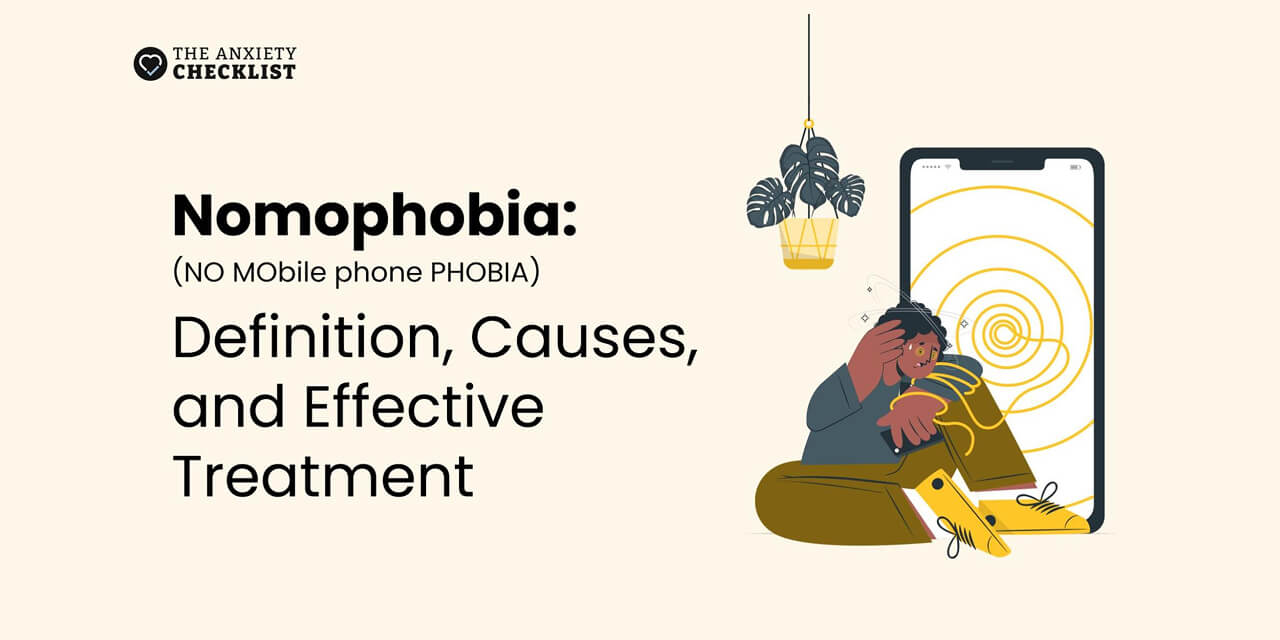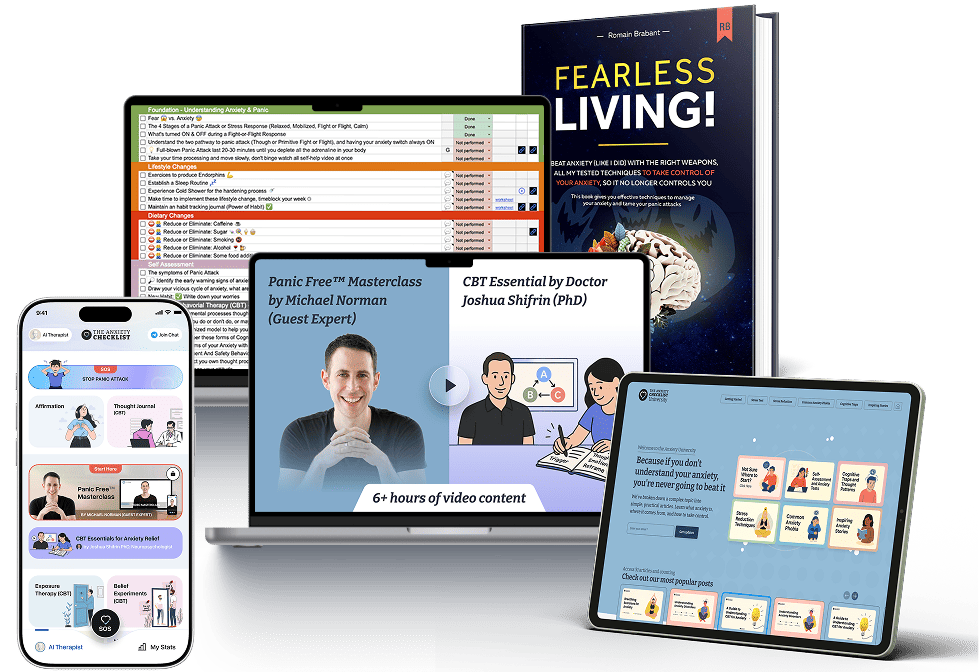When anxiety hits, do you know what to do next?
Learn how to calm your body, interrupt fear loops, and regain control step by step.
What Is Nomophobia?
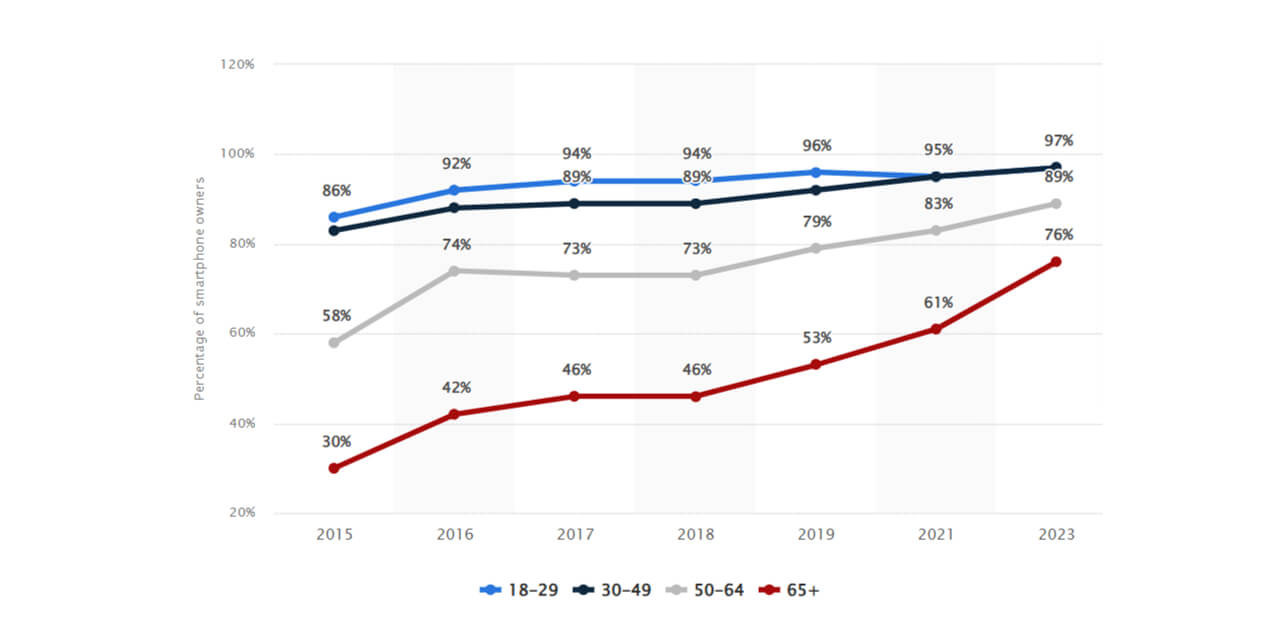
However, researchers think that nomophobia isn’t a specific phobia in its true sense but rather an addiction. The Diagnostic and Statistical Manual of Mental Disorders and WHO are yet to recognize it as a disorder.
This could be because large-scale surveys and studies have yet to be conducted.
Nomophobia and Its Association with Other Disorders
Our mobile phone usage has drastically changed in recent years. However, while nomophobia is a recent concept, it’s deeply associated with several behavioral disorders like anxiety, panic, depression, stress, loneliness, and mobile addiction.
Let’s examine the correlation for a clearer understanding.
Nomophobia and Smartphone Addiction
Nomophobia and smartphone addiction are strongly correlated. Smartphone addiction is categorized as a non-chemical technological addiction that’s related to human-machine interaction.
A survey conducted by Reviews states that 43% of Americans admit that they’re addicted to their smartphones and check their phones 205 times a day.
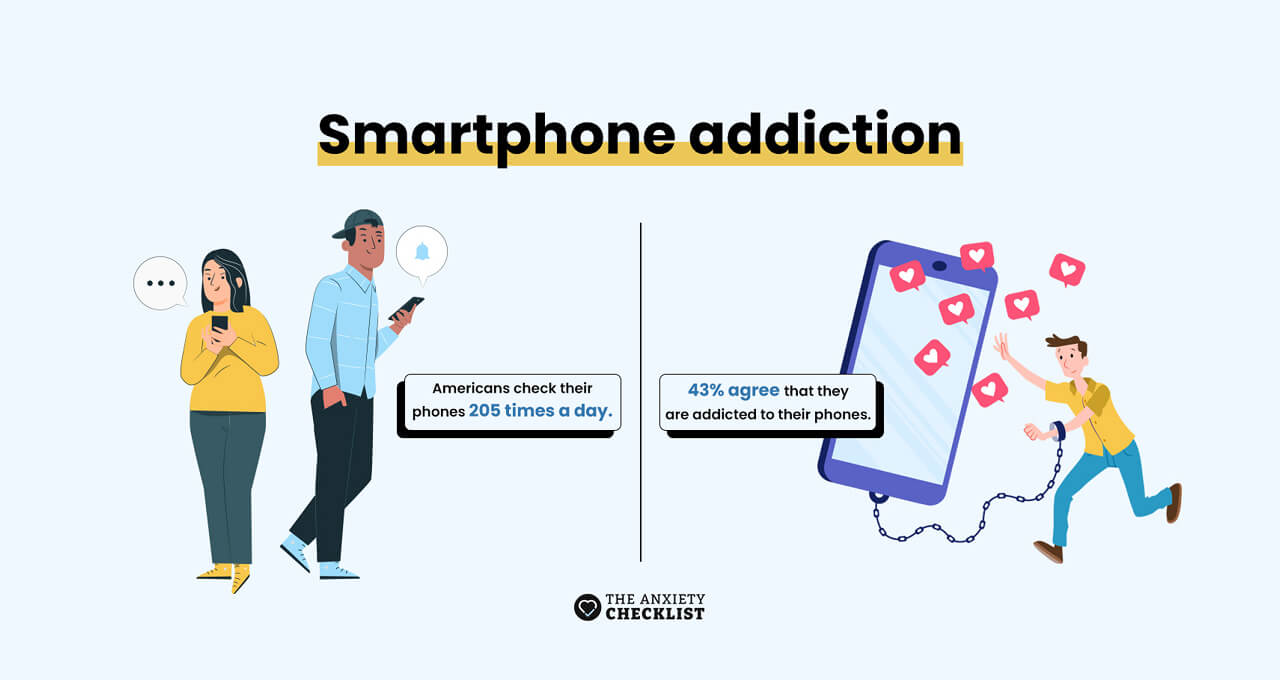
Depression and Anxiety
Common Causes of Nomophobia
Why would someone experience cell phone separation anxiety? It varies and could be the result of other behavioral disorders.
Here are the common causes that may trigger nomophobia.:
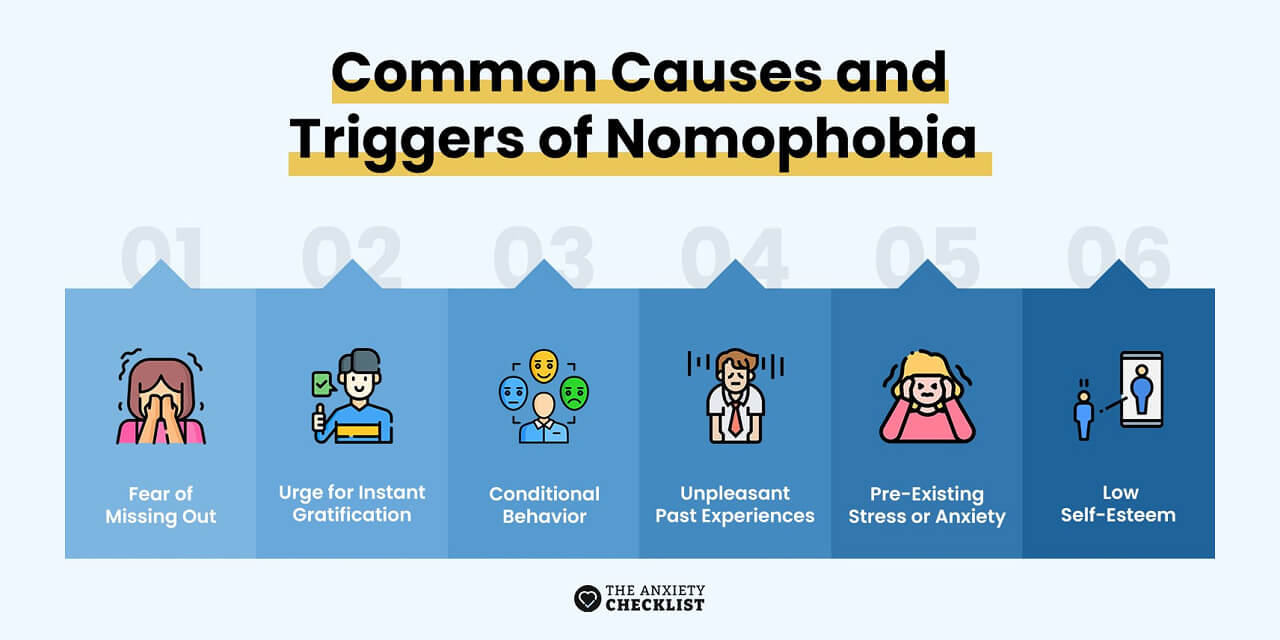
Nomophobia: Understanding the Symptoms
Nomophobia, like any other phobia, is related to irrational fear. As cell phone separation anxiety is closely linked to smartphone addiction and other behavioral disorders, many of the symptoms co-exist between them.
Symptoms of nomophobia can emerge at any time and may be difficult to control, though their intensity varies from person to person.
Here are some of the common symptoms of nomophobia:
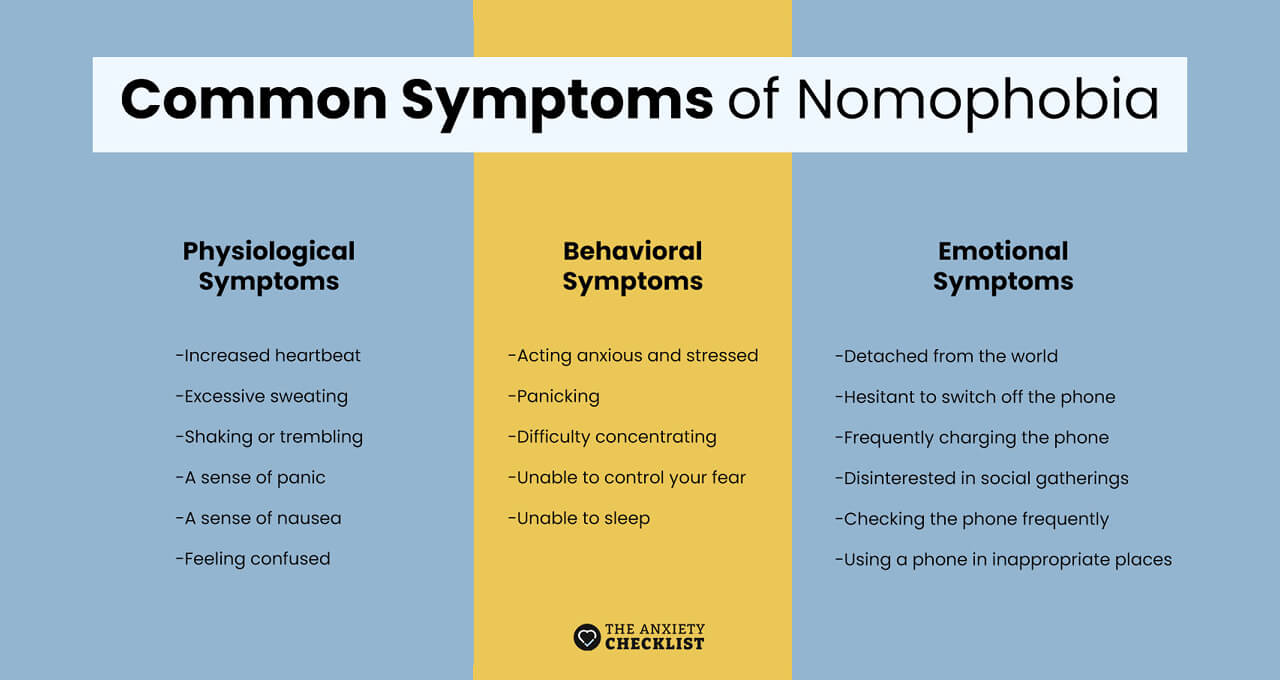
Physiological Symptoms
Due to the stress and anxiety caused by cell phone separation anxiety, a person may experience physical tension. This can vary from an elevated heartbeat for a short span to prolonged sweating, dizziness, and nausea.
Here are some common physiological symptoms of nomophobia:
Behavioral Symptoms
In some cases, nomophobia may result in irrational behavior. When your mind is conditioned to be dependent on a smartphone, it looks for constant stimulation or feedback on the device. When that experience is disrupted, it could cause someone with nomophobia to feel distressed, anxious, and agitated.
Let’s take a look at some of the common behavioral symptoms of cell phone separation anxiety:
Emotional Symptoms
Emotional symptoms are often the most prominent in individuals suffering from nomophobia. When these emotional responses intensify, they can contribute to more severe and exhausting behavioral and physiological symptoms.
Let’s look at some of the common emotional symptoms seen in nomophobia:
How Do You Know If You Have Nomophobia?
As discussed above, no-mobile-phone phobia may manifest in different ways. Many symptoms may look very similar to those of anxiety. So, how do you know if you have nomophobia? Watch out for these signs:
Proven Ways to Overcome Nomophobia
Nomophobia can impact your daily life significantly. If you’re exhibiting symptoms of this condition, you can take the GAD-7 Anxiety Test for self-assessment.
However, we’d like to note the importance of a psychiatrist to propose a suitable treatment plan to overcome cell phone separation anxiety. Here are some of the most preferred treatments:
1. Cognitive Behavioral Therapy
CBT, also known as talk therapy, focuses on discussing negative feelings associated with nomophobia. The therapist could talk you through various aspects of this condition, focusing on the triggers and underlying fears to identify thought patterns.
This is how CBT for anxiety could be planned:
2. Clinical Hypnotherapy
Clinical hypnotherapy sessions focus on relaxing and calming a person suffering from no-mobile-phone phobia.
Anxiety or phobia are uncontrolled feelings arising from a deeper level of consciousness. Hypnotherapy can be highly effective in calming your subconscious mind. It can alleviate nomophobia symptoms to improve your focus.
Contrary to popular misconception, this therapy is not about hypnotising someone. Rather, the therapist will lead you into a trans state where you both can explore the deeper causes of your cell phone separation anxiety.
3. Exposure Therapy
This approach believes in treating no-mobile-phone phobia and other anxieties through desensitization. It works towards getting the patients used to specific phobia triggers.
In exposure therapy, the therapist will identify the conditions, triggers, and risk factors of nomophobia in a person. He will then expose the person to controlled situations slowly resembling the triggers and situations.
With multiple sessions of talking, visualizing, and even simulating nomophobia-related situations, your anxiety levels may eventually lower. With positive reinforcement and an effective use of subliminals for anxiety relief, a patient can be trained to handle anxiety-provoking situations more calmly.
4. Medication
As nomophobia is a behavioral addiction, medication will not be prescribed solely to treat this condition. But in cases where the patient shows symptoms related to anxiety, depression, or panic attacks, medication is required.
Your psychiatrist may diagnose the symptoms and their severity and prescribe medicines to help:
How to Prevent Nomophobia
Self-care techniques are the best way forward to prevent nomophobia. That said, it takes a lot of conscious effort from the individual to make the right choices and develop the right habit to overcome no-mobile-phone phobia.
Let’s take a look at the most effective preventive measures to avoid fear and anxiety associated with the thought of being away from your phone.
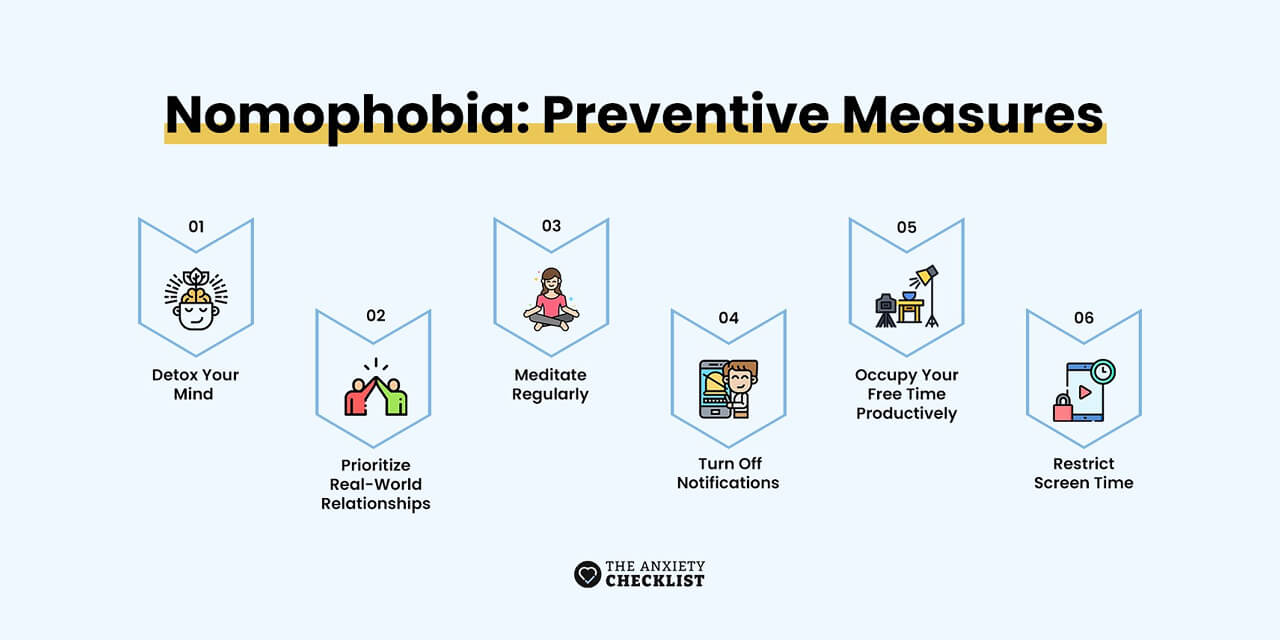
Frequently Asked Questions
A. Some of the dangers of nomophobia are:
A. Some of the risk factors that could lead to nomophobia are:
A. Your GP or psychiatrist may adopt different approaches to diagnose nomophobia. Some of the parameters they consider include:
A. Nomophobia can adversely impact the lifestyle and performance of adolescents and young adults. They may experience:
Conclusion
Previous Article
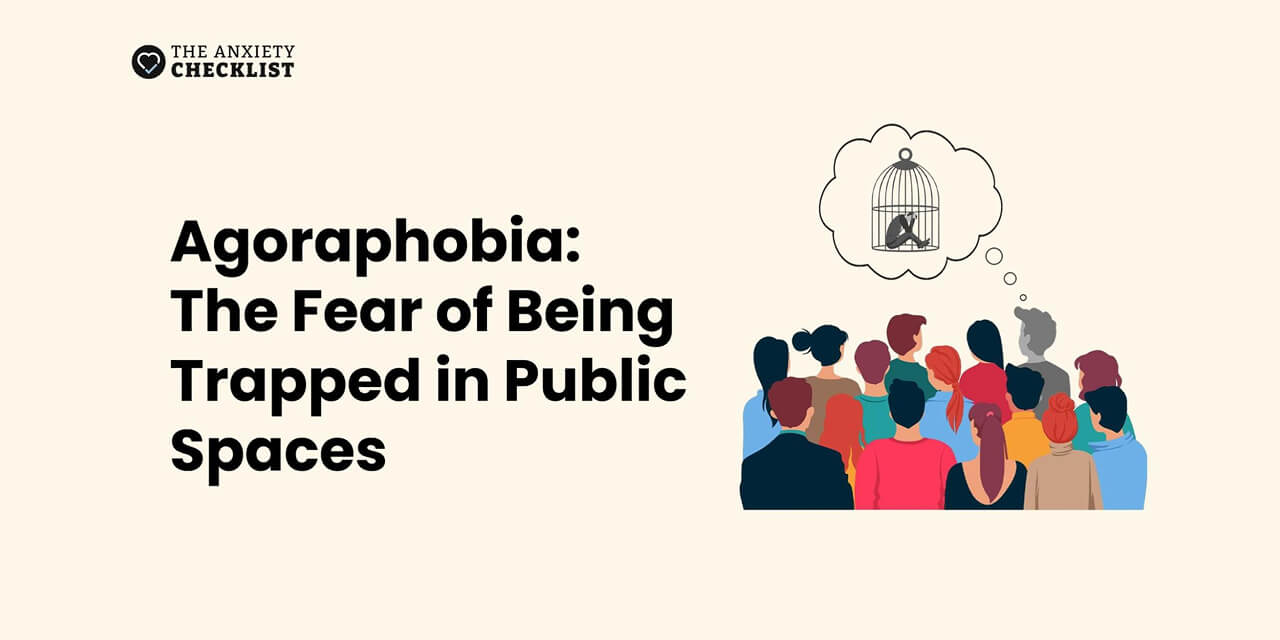
Agoraphobia: The Fear of Being Trapped in Public Spaces
Next Article
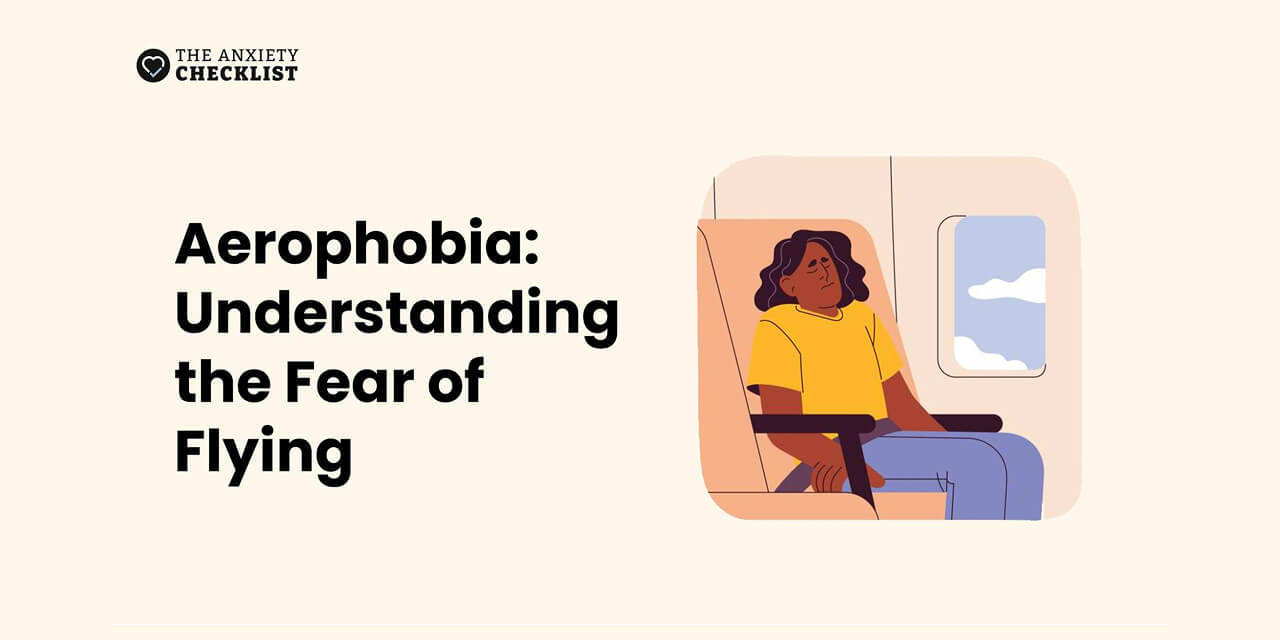
Aerophobia: Understanding the Fear of Flying
If you are in a crisis or any other person may be in danger - don't use this site. These resources can provide you with immediate help.



